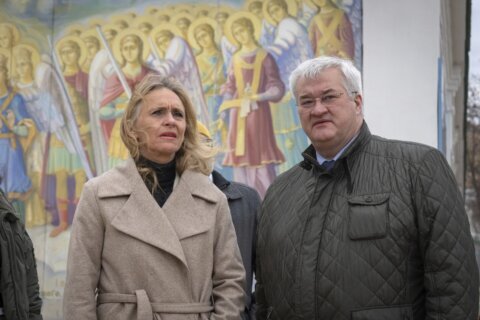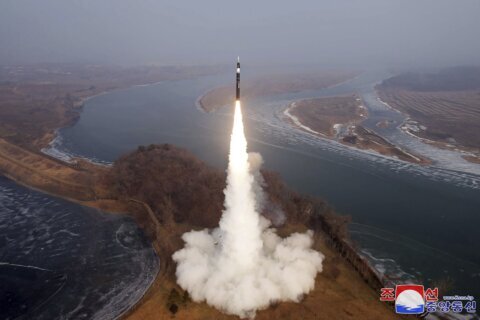EU leaders on Thursday sealed a deal to provide Ukraine with 50 billion euros ($54 million) to shore up its war-ravaged economy after Hungary dropped weeks of threats to veto the measure.
The aid package — about two-thirds loans and one-third grants to be paid out over a four-year period — is not intended to fund arms and ammunition, which fall under a separate EU plan. Instead, it aims to stabilize Ukraine’s economy after nearly two years of fighting, pay for rebuilding, and set the country up for future EU membership.
The package will help Kyiv plug budget gaps while avoiding the skyrocketing inflation seen in the first months after Russia’s full-scale invasion in February 2022. Ukraine lost a third of its economic output to wartime destruction and occupation by Moscow, which took over the main heavy industry hubs in the east.
The central bank had to print money to cover state expenses and inflation shot up, reaching a high of 26%. The economy rebounded somewhat last year, but Kyiv spends almost all of its tax revenue on the war.
As of Saturday, neither President Volodymyr Zelenskyy’s office nor the Ukrainian finance ministry have disclosed details of how the funds will be spent. However, statements by EU authorities, Ukrainian lawmakers and diplomats have identified key areas of concern:
Zelenskyy welcomed the assistance, in a post on X, formerly Twitter. He said that continued financial help from the EU would strengthen Ukraine’s long-term economic stability, “which is no less important than military assistance and sanctions pressure on Russia.”
Russia’s economy, meanwhile, has weathered the unprecedented economic sanctions by Kyiv’s Western allies better than expected, despite a price cap on Russian oil and natural gas and a widespread diversification in the West towards other energy sources.
In late November, Moscow adopted its biggest-ever federal budget, with defense spending overtaking social spending for the first time in modern Russian history. Record low unemployment, higher wages and targeted social spending have so far helped the Kremlin ride out the domestic impact of pivoting the economy to a war footing.
However, some analysts have called its spending plans “unsustainable in the long term,” saying they expect tax rises after the presidential election in March.
Copyright © 2025 The Associated Press. All rights reserved. This material may not be published, broadcast, written or redistributed.







